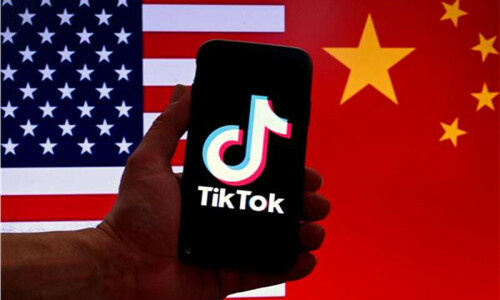On Tuesday, the United States Senate approved legislation mandating that the popular social media platform TikTok, owned by Chinese parent company ByteDance, must either divest its operations or face exclusion from the US market.
This requirement was included in a $95 billion foreign aid package, which also encompasses military assistance to Ukraine, Israel, and Taiwan. The bill has passed through Congress and is awaiting President Joe Biden’s signature.
Concerns raised by US and Western officials about TikTok’s popularity among young users center on allegations that it enables Beijing to gather data and conduct surveillance on its users. With 170 million users in the US alone, the platform has drawn scrutiny for its perceived ties to the Chinese government and its potential role in spreading propaganda.
Despite denials from China and ByteDance, the bill, if enacted, could lead to the unprecedented step of barring a company from operating in the US market. It received overwhelming bipartisan support in both the Senate and the House of Representatives.
President Biden has indicated his intention to sign the legislation, echoing his previous worries about TikTok’s implications. In a rare phone call with Chinese President Xi Jinping earlier this month, Biden reiterated these concerns.
TikTok has criticized the bill, lamenting the potential infringement on free speech rights and the economic impact on millions of users and businesses. The legislation requires ByteDance to sell TikTok within a year or risk being removed from major app stores in the US, such as those operated by Apple and Google.
Former US Treasury Secretary Steven Mnuchin has expressed interest in acquiring TikTok and has assembled a consortium of investors. Despite ongoing scrutiny from American authorities, a ban on TikTok could lead to legal challenges.
The bill grants the US president authority to designate other apps as national security threats if they are controlled by countries deemed hostile. Elon Musk, CEO of SpaceX and Tesla, has spoken out against banning TikTok, citing concerns about freedom of speech and expression.




